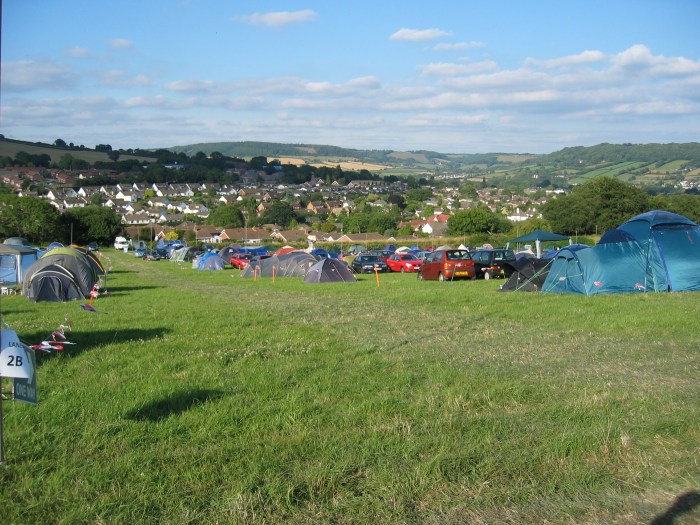 |
On a bright, sunny day
and with the ground dry and firm, few folk festival campsites could have greater aesthetic
appeal. However, the marked slope (see discussion last year) detracts from both comfort and safety. The ground is poorly drained and can easily become waterlogged. Some people still don't read the small print - in order to camp on this site you need either an advance event ticket or a season ticket for every day (and for every person who wishes to camp) and valid for each day of camping. The only other route (and much cheaper) is to pay £25 to join the Supporters Club - but this has to be done in advance of the festival. |
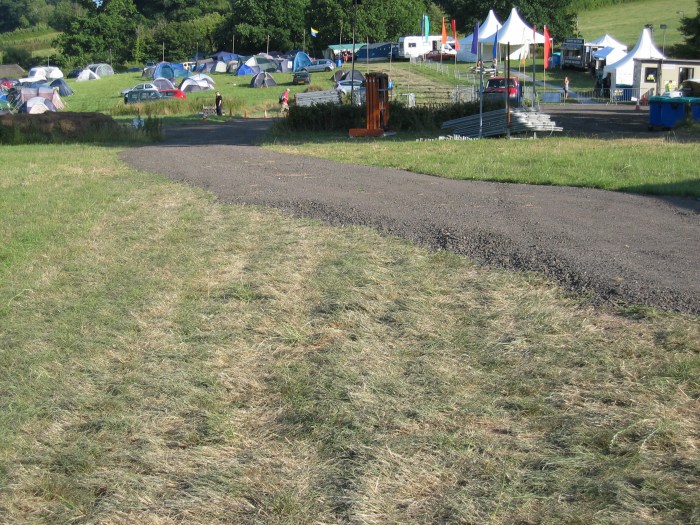 |
As advised last year, access roadways in both the camping fields and at the
Bulverton and including this track into field 2 had been surfaced sufficiently to help
ensure that vehicles could maintain traction in wet weather. If the ground had become
really soft more ballast would no doubt have been needed. In the event of course, the weather was so good that none of this effort or expense was required in 2010. The festival organisers also provided excellent wet weather walkways around the Ham and Blackmore Gardens marquees. The main campsite entrance is in the top right of the picture. Apologies from the tree that is casting a large shadow across this photo! |
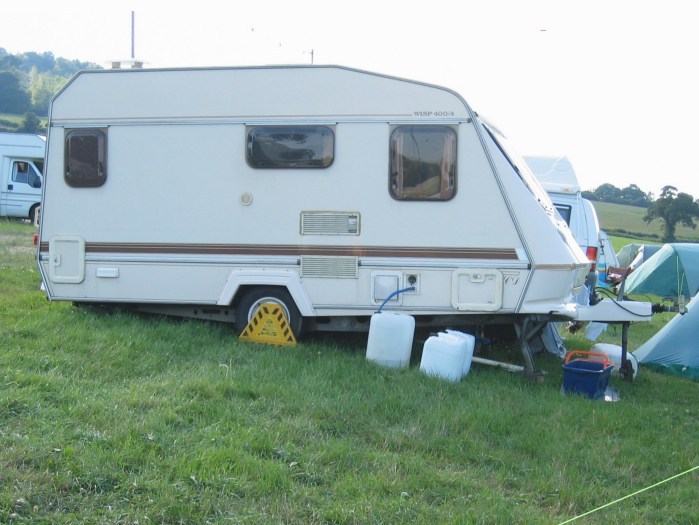 |
A caravan pitched on
the second row down Field 2, adjacent to the top campsite track that runs parallel to the
Bulverton Road. Even on this gently sloping ground, the front stabilisers are fully extended and perched precariously on small blocks of wood. Given the good ground conditions during the week, this was safe enough - especially as the caravan was fitted with a wheel clamp. The lower slopes of Field 2 are considerably steeper and wholly unsuitable for caravans. Many caravan owners do not realise that most of the nose weight should always be taken by the jockey wheel - and never by the front stabilisers. |
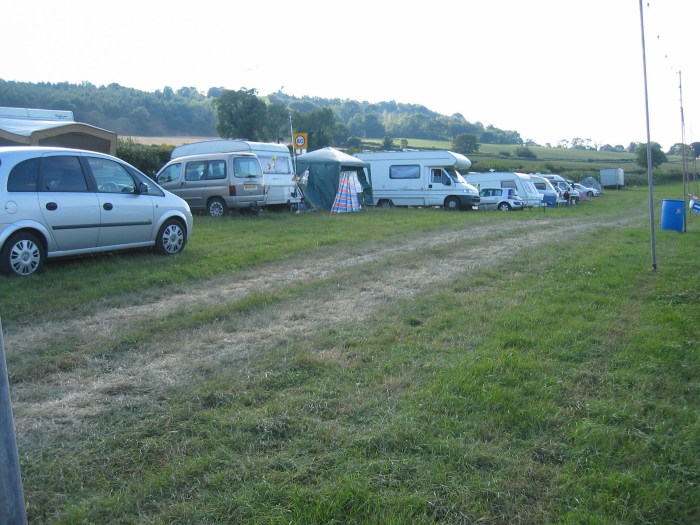 |
Motorhomes and
caravans alongside the Bulverton Road. This strip of almost flat ground is highly prized - and was used for motorhomes and caravans in 2010 (in contrast to 2009) both because of the good weather and because precautions had been taken to help ensure vehicle access if the ground had become wet. The string of small roadway lights (top right of photo) are appreciated by campers. One year I'll figure out how to get a night-time photo that captures both these lights and the campsite spirit. |
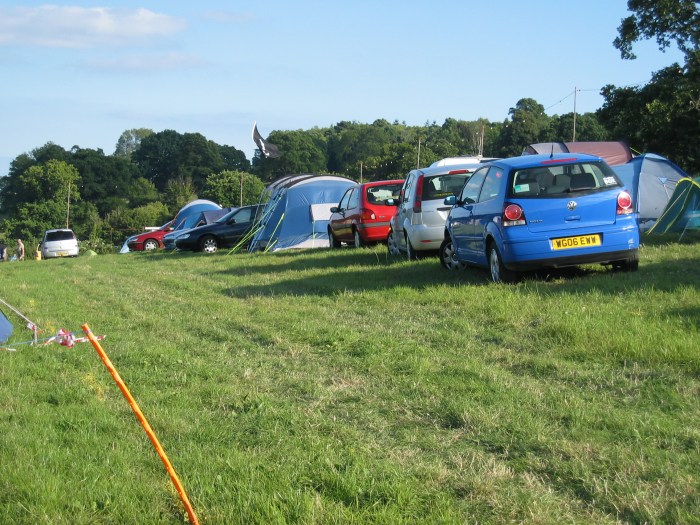 |
A row of cars parked
sensibly across the field gradient. Even if handbrakes had failed or not been applied
properly, these vehicles would not have constituted a risk to campers. In the background several cars can be seen parked down the slope - which should not have been allowed. Whilst handbrakes on cars are generally reliable (if properly applied) those on many caravans are either inadequate or non-existent. Caravans do not have to pass an annual MoT in the UK (unlike in some countries). |
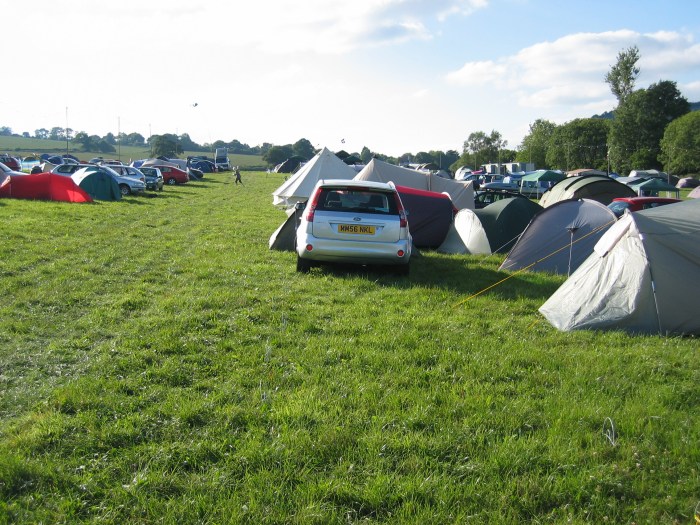 |
Wide roadways,
sunshine, vast open spaces and plenty of room for newcomers - just as well because the
festival had not yet even started. At the bottom of the field there is less of a slope - which is better for camping. However you are more at risk from runaway cars and caravans - and first in line for a mud bath if it rains heavily. All you need to add to this picture is the aroma of grilled bacon and the sound of a few guitars. And maybe a few Morris dancers? "I don't know why we are here, but I'm pretty sure that it is not to enjoy ourselves" Ludwig Wittgenstein, philosopher, 1889-1951. |
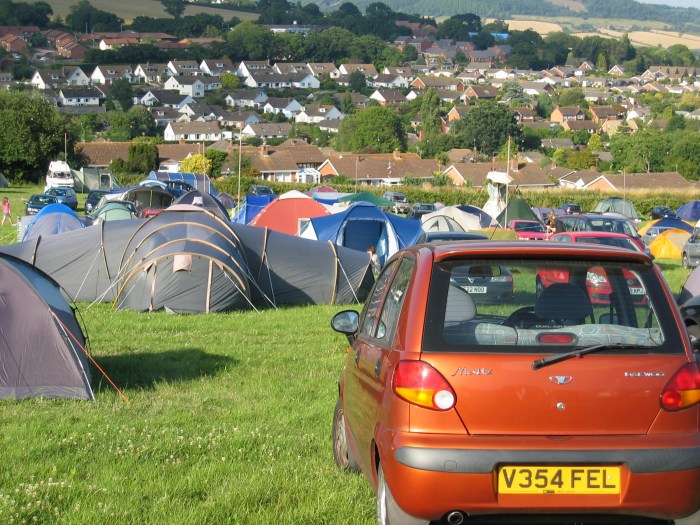 |
This vehicle is
pointing down a quite steep slope directly at a large tent. Campsite stewards should not
have allowed this. The technicalities are straightforward. Despite that modern cars have good brakes, handbrakes are inherently more likely to release as they cool down than were the designs used on older cars. On most modern cars they operate via disc brakes. As the discs cool (either after a drive or overnight), thermal contraction of the disc may cause the handbrake to release unless it has been quite firmly applied. With old fashioned drum brakes, the opposite can occur - they can grip more firmly as they cool. However, drums are less effective on the road because they readily overheat and fade.
|
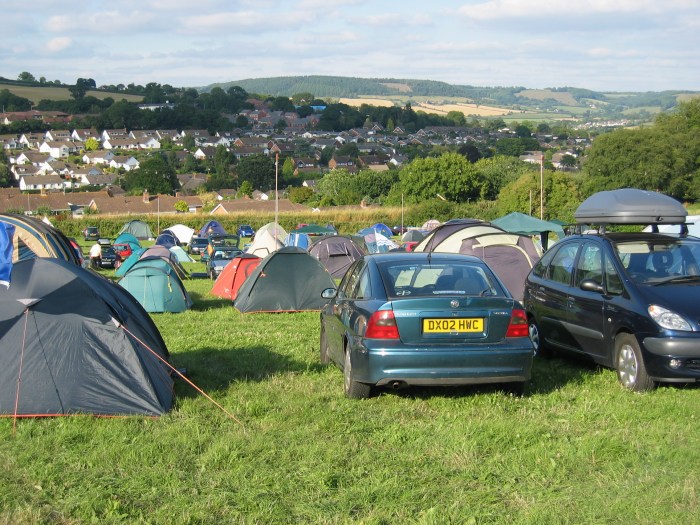 |
In all, about 50% of
vehicles were parked correctly across the slope and 50% were parked down the slope,
suggesting that there had been little or no enforcement of good practice. For over ten years the organisers of Sidmouth Festival have been made aware of the basic rules for caravan and car safety - yet a few mistakes are still made. It will perhaps take a fatality or serious injury to make them sit up and take notice - but it will then be too late to avoid consequences in terms of legal liability, adverse publicity and maybe future insurance premiums. Leaving cars in gear would be OK - but how could stewards be sure that every car had been left in gear? Let's see if they manage to get it right in 2011! |
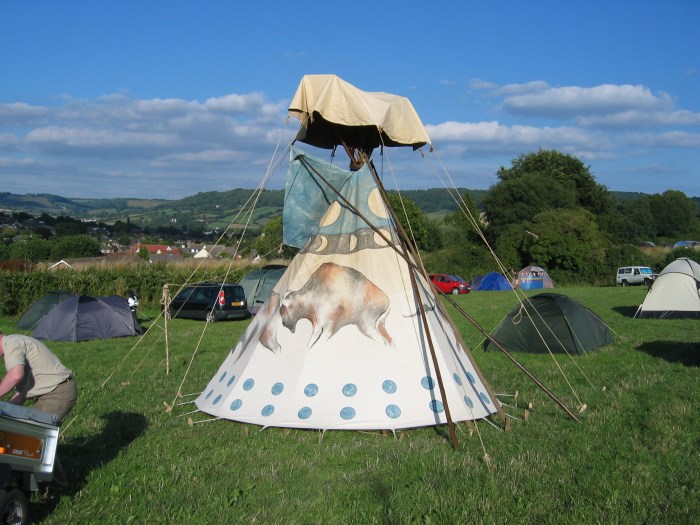 |
One of the more
unusual and photogenic of the tents on the lower slopes, where the ground is almost flat.. The expensive security fencing that used to surround this field is no longer deployed. This will save the festival money but may increase the number of 'illegal' campers. |
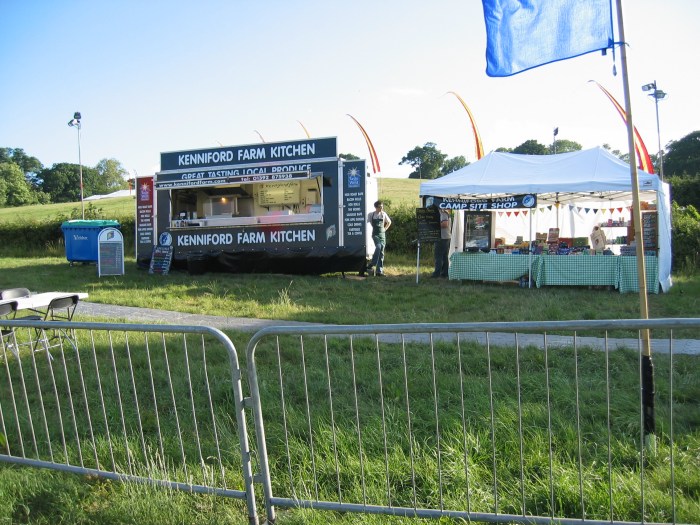 |
2010 saw an emphasis
on availability of 'local food' - but it would all have detracted from sales in local
Sidmouth shops and in the days of the old International Festival would have led to further
objections from Sidmouth traders - and from some of Sidmouth's less able councillors. Nowadays, these inter-related and self-interested groups seem to have been brought more 'on side' despite that takings must be well down from those when the town was truly packed during the first week in August. Prices for food at the Bulverton were extortionate - but the traders have to make money somehow to ensure that their attendance proves worthwhile. The campsite Farm Kitchen was apparently well liked. |